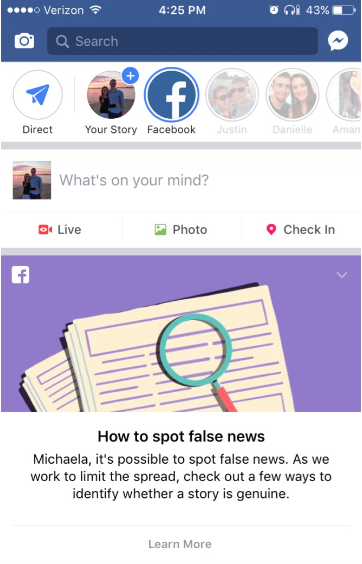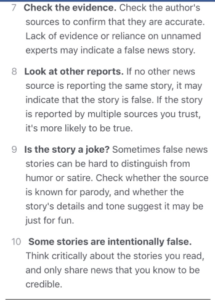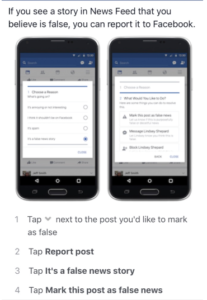 Hearing the term “fake news” has become common in the media. This concept was hard for me to grasp because I have always thought of the news to be factual, a place where I didn’t have to question the content I was hearing or seeing. I think that this trust not only comes from a long history between the people and the media, but also from laziness. Many people have so many things going on in their daily lives that they can’t even keep up within their own bubbles. Educating yourself about current events and staying up to date with important information takes time and the news provides the option for people to not have to invest this time.
Hearing the term “fake news” has become common in the media. This concept was hard for me to grasp because I have always thought of the news to be factual, a place where I didn’t have to question the content I was hearing or seeing. I think that this trust not only comes from a long history between the people and the media, but also from laziness. Many people have so many things going on in their daily lives that they can’t even keep up within their own bubbles. Educating yourself about current events and staying up to date with important information takes time and the news provides the option for people to not have to invest this time.
So when the term “fake news” began to spread it became another task that people needed to do if they wanted to consume news. They had to teach themselves how to spot fake news.
I learned of the implications of fake news in regards to the 2016 US Presidential Election. For example, one of the most widespread fake news articles said that the Pope had endorsed Trump with an engagement of over 2 million people on Facebook alone. This is not the only fake news story to have such large reach, there are many others that also had implications of their own.
However as I was exploring the internet for information on fake news, I came across this TED talk given by Stephanie Busari, a journalist and editor at CNN International Digital.
Stephanie’s story illuminates implications of fake news that I hadn’t thought about yet. Not only does this inaccurate information ignite action, but it also deters it. The lack of representation and information in the news is just as, if not more significant than what we do see.
But what can the concerned news consumer do? Well firstly is to be cognizant of the signs of fake news and reporting it when you come across it in your social media. Also it is important to determine which news sources you trust and identifying why that it. Take some time to do research as to who funds the companies, what are the themes seen throughout the content reported, and what efforts are they taking to ensure legitimacy. According to this 2014 study, BBC was the most trusted news source of the time.
What news sources do you rely on and do you think you have potentially spread fake news?








